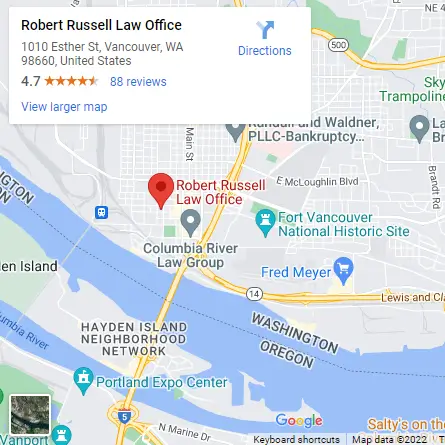Probate Court Forms
Probate attorneys often get a lot of questions related to wills and probate. Very broadly, estate administration refers to the judicial proceeding concerned with transferring assets of a decedent (the dead person) to surviving heirs after death. While there exists a Uniform Probate Code, the actual legal process depends on the guidelines outlined in relevant state law. As such, to avoid mistakes when dealing with probate or any other estate planning document, it is best to consult knowledgeable Vancouver estate planning lawyers. Getting legal advice early on can help make things less complicated.
This article will briefly discuss probate and probate forms. The first part will be on the basics of probate and estate administration, the second part will give a quick overview of the general probate process, and the last part will focus on common probate forms that may apply to you.
Basics of Estate Planning and Probate
Some people assume that they would only need a probate attorney if their family member died without a will. This is not the case. If the testator, for example, did not specify that their real or personal property will transfer on death to their surviving spouse, probate laws may come into play. Meanwhile, if your loved one did not leave a will at all, you might have to deal with intestate probate. Here, any concerned heir of the deceased person must consider intestate rules, which are comparable to that of a testate or will-based probate case. Competent Vancouver estate planning attorneys can explain how legal documents related to probate matters are processed in Washington.
A Quick Overview of the General Probate Process
In general, a petitioner will have to go through the following procedures when dealing with the probate court:
- File the death certificate (the legal document with the date of death and all necessary details) and the will at the relevant courthouse. This essentially begins the probate proceedings.
- File the correctly filled out court forms (Petition for Probate) and give the appropriate notice to interested parties. Prove to the probate judge jurisdiction over necessary parties.
- Receive a certification that you have been appointed as a personal representative. Get a tax identification number, open a bank account for the estate, and file applicable tax returns.
- Make sure that estate property is marshaled, following probate rules. This includes paying debts (if the estate owes any creditor) and working on who gets what, taking into account what is in the will and the probate code.
- Have the beneficiaries approve the arrangement for distributing the estate assets, keeping the statute of limitations in mind. Distribute the assets of the estate accordingly.
As mentioned, the actual probate procedure is under local probate law. This means that it can significantly vary from state to state. This means that while the above paperwork is being filled out, one must comply with the state’s relevant probate and estate law.
Common Probate Forms
While each state and county will have different mandatory forms, below are the most common set of legal documents (aside from the Petition for Probate) that you would likely need for probate proceedings:
Interested Party Notification and Certification Form
From the name itself, this was meant to notify heirs, family members, and other interested parties that a petition for probate is being initiated. The certification is essentially documentation that the necessary notification was made.
Estate Announcement and Creditor Notification
Similar to the above, this involves providing a notification (this time to creditors) and putting up the required notice in a local paper.
Initial Inventory
This is often required three months after the appointment.
Final Accounting
This is a legal document that tells the court of all the activity of the estate. Unlike other legal documents, this may not be as easy to produce. However, it is necessary for the proceeding to go as intended.
Final Distribution
In this final step within the probate procedure, any remaining assets will be distributed to rightful beneficiaries. This will also discharge the personal representative from their responsibilities.
Talking to a Vancouver Estate Planning Attorney
In all of these, being supervised by probate lawyers will make things a lot less complicated. In itself, the circumstance can be stressful when someone dies. You will need an attorney from a trusted law office to make sure things are simplified. This is mainly because probate forms and the court system are pretty confusing.
A reliable probate lawyer can answer your questions on probate administration, administering the estate, or other estate planning concerns. Deal with probate issues with a reliable Vancouver estate planning law firm. Contact us at Robert Russell Law Office and consult with a seasoned Vancouver estate planning attorney.







